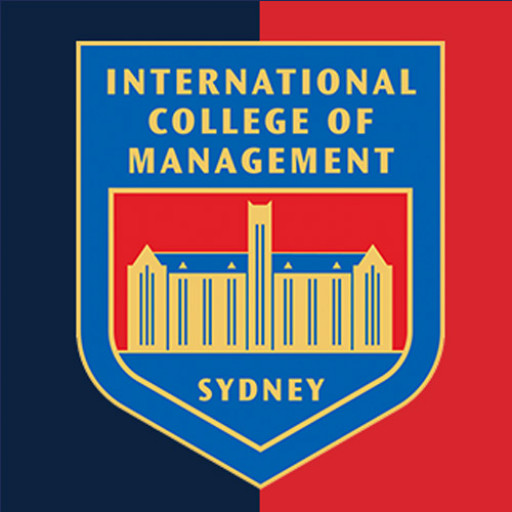Photos of university / #unlitoral_
The College of Journalism and Mass Communications offers a Master of Arts degree with specializations available in media studies, professional journalism, and integrated media communications (IMC). Applicants seeking admission to the IMC program will be required to complete a basic statistics course if they have not taken one as a part of their undergraduate coursework.
The master's degree is designed to build or enhance professional knowledge, skills, and leadership in journalism and mass communications. The program is designed to accommodate the needs of students with an undergraduate degree in a journalism and mass communications; journalism, advertising, public relations, marketing and education professionals; or students with careers and undergraduate degrees in areas other than journalism and mass communications. Applicants with an undergraduate major in an area of study other than journalism and mass communications, or students with little or no professional related experience may be required to complete undergraduate journalism and mass communications courses.
All of the specializations are available by distance education. The college offers synchronous (real-time) and asynchronous (flexible) distance courses, all of which are interactive. The synchronous courses are interactive between campus and distance students, and typically meet one evening a week. Overall, the program's interdisciplinary curriculum combines up-to-date knowledge with practical application and individualized experience.
Gain cutting-edge theoretical knowledge about the various influences and effects of the media. A thesis is required.
Requires a minimum of 30 semester hours with a thesis.
- 9 required hours of course work in the major
- 9 hours of electives
- either a 6 hour professional project
- OR, 6 hours of advanced coursework in the major
- 6 hour thesis
- 8 credit hours in addition to the thesis must be earned in courses opened exclusively to graduate students.
Who Should Consider This Degree
- Media professionals who want to enhance or add areas of expertise
- Media professionals who want to advance in their field
- Business professionals who design public relations and communication materials for companies
- Middle and high school teachers who produce or work with student staffs to produce school publications
- Media professionals who wish to fulfill personal and professional goals
- Full-time professionals who want flexible course schedules and delivery options
- Independent, self-motivated individuals with a strong commitment to degree completion
Media Studies Thesis Track: Option I(30 credit hours)Required Courses
In addition to the courses below, 8 credit hours (in addition to the thesis) must be earned in courses open exculsively to graduate students.
*Denotes courses offered only to graduate students.
- JGRD 915 Mass Media Theory* 3 credit hours
- JGRD 919 Mass Media Research* 3 credit hours
- JGRD 954 Government and the Media* 3 credit hours
- JGRD 899 Thesis 6 credit hours
- JGRD 992 Professional project or advanced coursework 6 credit hours
Electives 9 credit hours
The Bachelor’s Degree in International Family Studies at the National University of the Littoral encompasses a comprehensive curriculum designed to provide students with a thorough understanding of family dynamics, cultural influences, social policies, and intercultural communication relevant to family life in a global context. The program requires students to complete a total of 240 ECTS credits, which include coursework, practical training, and research components over a period of four years. Admission prerequisites typically include a completed secondary education certificate and proficiency in the university's language of instruction, generally Spanish or English, depending on the program track. Students are expected to participate in core courses such as Family Sociology, Developmental Psychology, Cross-Cultural Communication, Social Policy for Families, and Family Law. Elective courses allow specialization in areas like Child Development, Family Counseling, or International Social Work. Practical training, including internships with family service organizations or social agencies, is mandatory to ensure experiential learning and professional readiness. A research thesis or final project is required at the conclusion of the program, where students apply theoretical knowledge to real-world family issues, often through fieldwork or case studies. The program aims to equip graduates with skills in social analysis, intercultural competence, counseling, and policy advising, preparing them for careers in international social services, family support organizations, NGOs, or further academic study. Continuous assessment methods encompass written exams, project reports, presentations, and participation. To graduate, students must maintain a minimum GPA as specified by the university, complete all coursework and practical training, and successfully defend their research project. The program also encourages engagement in seminars, workshops, and international exchanges to broaden students’ perspectives on family practices across different cultures.
Funding for the International Family Studies program at the National University of the Littoral typically includes various sources of financial support aimed at assisting students in their academic journey. The university offers a range of scholarships, grants, and financial aid options designed to make education accessible and affordable for both domestic and international students. Scholarship opportunities are often available based on academic performance, financial need, or specific criteria related to the student's background and interests. Prospective students are encouraged to apply early and submit necessary documentation to be considered for these financial aid programs.
In addition to internal scholarships, students might also explore external funding sources such as governmental grants, international exchange programs, and private foundations that support studies in family and social sciences. The university's financial aid office provides detailed information and guidance on eligibility, application procedures, and deadlines for various funding opportunities. Moreover, the program's costs may vary depending on the student's residency status, with domestic students typically benefiting from lower tuition fees compared to international students, who may have access to specific scholarship programs intended to promote international education collaboration.
Students enrolled in the International Family Studies program can also consider student loans, though these options are subject to the regulations and policies of the university and national law. Some students may also engage in part-time work or internships facilitated by the university to support their studies financially. The university occasionally collaborates with local organizations and community projects, offering students practical experience coupled with financial compensation.
Furthermore, the university actively participates in international academic mobility programs such as Erasmus+ and others, which can provide funding and scholarships for students participating in exchange semesters. These opportunities allow students to broaden their cultural and professional experiences while receiving financial support to cover travel and living expenses during their stays abroad. Overall, the financing of studies in the International Family Studies program is structured to support students through a combination of institutional aid, external funding opportunities, and personal financial planning. The university remains committed to providing transparent and accessible financial support mechanisms to foster the academic and professional growth of its students in the field of family studies.
The International Family Studies program at the National University of the Littoral is designed to prepare students for a comprehensive understanding of family dynamics, social policies, and intercultural relations related to family life. The curriculum emphasizes interdisciplinary approaches, integrating psychology, sociology, education, and law to equip graduates with the skills necessary to address complex family issues in diverse contexts. Students engaged in this program gain knowledge about family development, conflict resolution, gender roles, and the impact of societal changes on family structures. The program also offers practical training through internships and project work, allowing students to apply theoretical knowledge in real-world settings. Graduates are prepared for careers in social work, family counseling, non-governmental organizations, and public policy development related to family welfare. The program aims to foster intercultural sensitivity and develop research competencies to analyze family-related phenomena critically. Courses are delivered by qualified faculty members with significant research and professional experience in family studies and related fields. The program emphasizes the importance of understanding cultural diversity, promoting family well-being, and supporting social inclusion initiatives. Students may also have opportunities to participate in international exchanges and collaborative research projects, enhancing their global perspective. Overall, the International Family Studies program seeks to produce well-rounded professionals capable of contributing to the development of family support systems and social policies that enhance family resilience and social cohesion in various communities.






